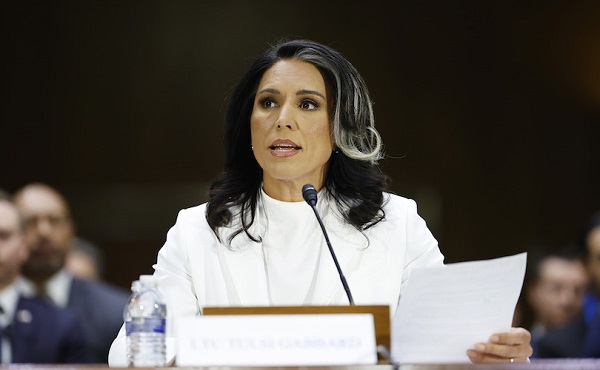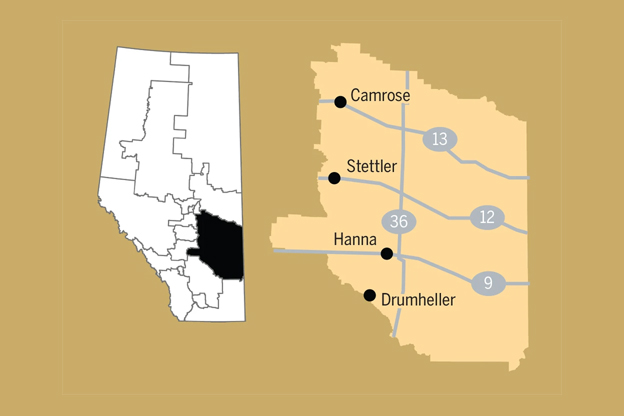Uncategorized
UK’s May faces Parliament after EU grants Brexit extension

LONDON — A clearly frustrated European Union has given Britain a few more months to find a way out of its Brexit quagmire. Now it’s up to Britain’s squabbling politicians to work out if they can meet the new Halloween deadline.
Prime Minister Theresa May is expected to brief Parliament Thursday on the results of the emergency EU summit that ended in the early hours with the bloc agreeing an extension to the country’s departure until Oct. 31.
However, her path toward actually taking Britain out of the EU remains unclear.
She is blocked by a strong faction in her own Conservative Party that hates her withdrawal deal and hopes to oust her, and talks aimed at winning support from the opposition Labour Party are moving forward slowly, if at all.
May’s own authority has been gravely compromised by the long Brexit ordeal and she has promised to step down once Britain leaves the bloc — if efforts to get rid of her more quickly do not bear fruit.
Faced with so much uncertainty, EU leaders whose talks went well after midnight agreed on a new Oct. 31 cutoff date. If no extension was granted, then Britain faced the prospect of crashing out of the EU this Friday with no deal, a scenario that in Parliament worry would lead to a deep recession as tariffs are imposed on U.K. exports and other restrictions on trade are imposed.
“Please, do not waste this time,” European Council President Donald Tusk pleaded. He said the EU was giving Britain six more months “to find the best possible solution” to its Brexit impasse.
Like many things related to Brexit, the extension was a messy compromise. May came to an emergency summit in Brussels seeking to postpone Britain’s departure from the EU until June 30. Some European leaders
Leaders of the 27 remaining EU member states met for more than six hours over a dinner of scallop and cod before settling on the end of October, with the possibility of an earlier Brexit if Britain ratifies a withdrawal agreement.
May said the possibility of leaving before the deadline was a key request of hers.
“I continue to believe we need to leave the EU, with a deal, as soon as possible,” she told reporters.
She noted that if U.K. lawmakers back her Brexit deal, Britain could still leave by June 30 — the Brexit deadline she had requested from the bloc — and possibly as soon as May 22, which would release Britain from having to participate in elections for the European Parliament.
May spoke to the 27 EU leaders for just over an hour, before they met for dinner without her to decide Britain’s fate. In contrast to some testy recent summits, there were signs of warmth, even
While many leaders said they were inclined to grant a Brexit delay, Macron expressed reservations, warning as he arrived at the summit that “nothing is decided.”
Afterward, the French president said he was satisfied with the outcome.
“We did the best possible compromise to preserve the unity of the 27 (other EU members) because we have left the United Kingdom more time to deliver a deal,” Macron said.
Tusk said that during the extension Britain “will continue its sincere
Several months have passed since May and the EU struck a deal laying out the terms of Britain’s departure and the outline of future relations. All that was needed was ratification by the British and European Parliaments.
But U.K. lawmakers rejected it — three times. As Britain’s departure date of March 29 approached with no resolution in sight, the EU gave Britain until Friday to approve a withdrawal plan, change course and seek a further delay to Brexit, or crash out of the EU with no deal to cushion the shock.
Economists and business leaders have warned that a ‘no-deal’ Brexit would lead to huge disruptions in trade and travel, with tariffs and customs checks causing gridlock at British ports and possible shortages of goods.
The Confederation of British Industry said the Brexit extension means an “imminent economic crisis” has been averted for now.
After all, all options from a ‘no-deal’ Brexit to a general election to no Brexit at all remain on the table.
May has previously said that “as prime minister” she could not agree to let Britain stay in the EU beyond June 30, and has promised to step down once Brexit is delivered. Many Conservative Party lawmakers want a new leader to take charge of the next stage of Brexit. But they can’t force her out until the end of the year, after she survived a no-confidence vote in December.
Several days of talks between May’s Conservative government and the main opposition Labour Party aimed at finding a compromise have failed to produce a breakthrough. Labour
Pro-EU politicians said the next few months should be used to hold a new referendum on whether to leave the EU or remain. Scottish National Party Nicola Sturgeon said in a tweet after the extension was granted that the British people should be allowed to “decide if they still want to leave.”
Irish Prime Minister Leo Varadkar said the time had come for Britain to decide what it wants.
“We’re giving them a very long time to take a decision,” he said.
“You know, the European Union is not a prison. Nobody has to stay but it is also a home and we are not going to kick anyone out.”
As to the symbolic end date? He said it was not on the minds of the EU leaders.
“As I learned this evening, Halloween is not a holiday widely celebrated across the European Union,” Varadkar said.
____
Katz reported from London. Associated Press writers Mike Corder and Angela Charlton in Brussels and Danica Kirka in London, and Sylvie Corbet in Paris contributed to this report.
Raf Casert, Jill Lawless And Gregory Katz, The Associated Press
Uncategorized
Poilievre on 2025 Election Interference – Carney sill hasn’t fired Liberal MP in Chinese election interference scandal

From Conservative Party Communications
“Yes. He must be disqualified. I find it incredible that Mark Carney would allow someone to run for his party that called for a Canadian citizen to be handed over to a foreign government on a bounty, a foreign government that would almost certainly execute that Canadian citizen.
“Think about that for a second. We have a Liberal MP saying that a Canadian citizen should be handed over to a foreign dictatorship to get a bounty so that that citizen could be murdered. And Mark Carney says he should stay on as a candidate. What does that say about whether Mark Carney would protect Canadians?
“Mark Carney is deeply conflicted. Just in November, he went to Beijing and secured a quarter-billion-dollar loan for his company from a state-owned Chinese bank. He’s deeply compromised, and he will never stand up for Canada against any foreign regime. It is another reason why Mr. Carney must show us all his assets, all the money he owes, all the money that his companies owe to foreign hostile regimes. And this story might not be entirely the story of the bounty, and a Liberal MP calling for a Canadian to be handed over for execution to a foreign government might not be something that the everyday Canadian can relate to because it’s so outrageous. But I ask you this, if Mark Carney would allow his Liberal MP to make a comment like this, when would he ever protect Canada or Canadians against foreign hostility?
“He has never put Canada first, and that’s why we cannot have a fourth Liberal term. After the Lost Liberal Decade, our country is a playground for foreign interference. Our economy is weaker than ever before. Our people more divided. We need a change to put Canada first with a new government that will stand up for the security and economy of our citizens and take back control of our destiny. Let’s bring it home.”
Uncategorized
Canada Needs A Real Plan To Compete Globally

From the Frontier Centre for Public Policy
Ottawa’s ideological policies have left Canada vulnerable. Strategic action is needed now
As Canada navigates an increasingly complex geopolitical landscape, the next federal government must move beyond reflexive anti—Americanism regardless of its political leanings. Instead, Canada should prioritize national interests while avoiding unnecessary conflict and subservience.
The notion that Canada can stand alone is as misguided as the idea that it is only an economic appendage of the United States. Both perspectives have influenced policy in Ottawa at different times, leading to mistakes.
Rather than engaging in futile name-calling or trade disputes, Canada must take strategic steps to reinforce its autonomy. This approach requires a pragmatic view rooted in Realpolitik—recognizing global realities, mitigating risks, governing for the whole country, and seizing opportunities while abandoning failed ideologies.
However, if Washington continues to pursue protectionist measures, Canada must find effective ways to counteract the weakened position Ottawa has placed the country in over the past decade.
One key strategy is diversifying trade relationships, notably by expanding economic ties with emerging markets such as India and Southeast Asia. This will require repairing Canada’s strained relationship with India and regaining political respect in China.
Unlike past Liberal trade missions, which often prioritized ideological talking points over substance, Canada must negotiate deals that protect domestic industries rather than turning summits into platforms for moral posturing.
A more effective approach would be strengthening partnerships with countries that value Canadian resources instead of vilifying them under misguided environmental policies. Expand LNG exports to Europe and Asia and leverage Canada’s critical minerals sector to establish reciprocal supply chains with non-Western economies, reducing economic reliance on the U.S.
Decades of complacency have left Canada vulnerable to American influence over its resource sector. Foreign-funded environmental groups have weakened domestic energy production, handing U.S. industries a strategic advantage. Ottawa must counter this by ensuring Canadian energy is developed at home rather than allowing suppressed domestic production to benefit foreign competitors.
Likewise, a robust industrial policy—prioritizing mining, manufacturing, and agricultural resilience—could reduce dependence on U.S. and Chinese imports. This does not mean adopting European-style subsidies but rather eliminating excessive regulations that make Canadian businesses uncompetitive, including costly domestic carbon tariffs.
Another key vulnerability is Canada’s growing military dependence on the U.S. through NORAD and NATO. While alliances are essential, decades of underfunding and neglect have turned the Canadian Armed Forces into little more than a symbolic force. Canada must learn self-reliance and commit to serious investment in defence.
Increasing defence spending—not to meet NATO targets but to build deterrence—is essential. Ottawa must reform its outdated procurement processes and develop a domestic defence manufacturing base, reducing reliance on foreign arms deals.
Canada’s vast Arctic is also at risk. Without continued investment in northern sovereignty, Ottawa may find itself locked out of its own backyard by more assertive global powers.
For too long, Canada has relied on an economic model that prioritizes federal redistribution over wealth creation and productivity. A competitive tax regime—one that attracts investment instead of punishing success—is essential.
A capital gains tax hike might satisfy activists in Toronto, but it does little to attract investments and encourage economic growth. Likewise, Ottawa must abandon ideological green policies that threaten agri-food production, whether by overregulating farmers or ranchers. At the same time, it must address inefficiencies in supply management once and for all. Canada must be able to feed a growing world without unnecessary bureaucratic obstacles.
Ottawa must also create an environment where businesses can innovate and grow without excessive regulatory burdens. This includes eliminating interprovincial trade barriers that stifle commerce.
Similarly, Canada’s tech sector, long hindered by predatory regulations, should be freed from excessive government interference. Instead of suffocating innovation with compliance mandates, Ottawa should focus on deregulation while implementing stronger security measures for foreign tech firms operating in Canada.
Perhaps Ottawa’s greatest mistake is its knee-jerk reactions to American policies, made without a coherent long-term strategy. Performative trade disputes with Washington and symbolic grandstanding in multilateral organizations do little to advance Canada’s interests.
Instead of reacting emotionally, Canada must take proactive steps to secure its economic, resource, and defence future. That is the role of a responsible government.
History’s best strategists understood that one should never fight an opponent’s war but instead dictate the terms of engagement. Canada’s future does not depend on reacting to Washington’s policies—these are calculated strategies, not whims. Instead, Canada’s success will be determined by its ability to act in the interests of citizens in all regions of the country, and seeing the world as it is rather than how ideological narratives wish it to be.
Marco Navarro-Génie is the vice president of research at the Frontier Centre for Public Policy. With Barry Cooper, he is co-author of Canada’s COVID: The Story of a Pandemic Moral Panic (2023).
-
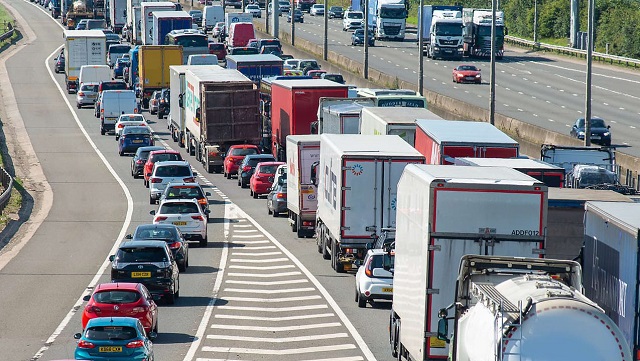
 Daily Caller2 days ago
Daily Caller2 days agoMisguided Climate Policies Create ‘Real Energy Emergency’ And Permit China To Dominate US
-
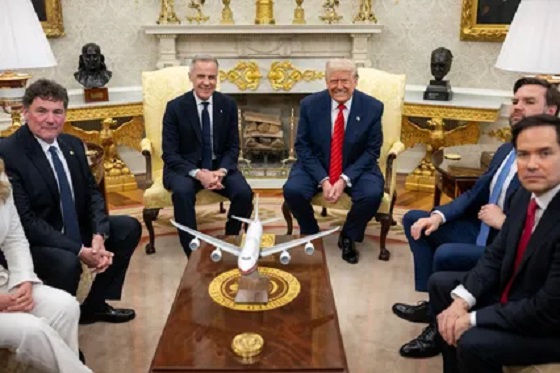
 Business2 days ago
Business2 days agoAfter successful anti-American election campaign, Carney pivots to embrace US: Hails Trump as a “transformational president”
-

 Alberta2 days ago
Alberta2 days agoBonnyville RCMP targeted by suspect driving a trackhoe – Update
-

 COVID-191 day ago
COVID-191 day agoStudy finds nearly half of ‘COVID deaths’ had no link to virus
-
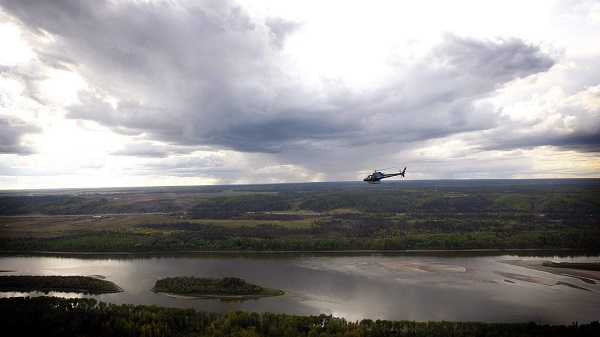
 Alberta2 days ago
Alberta2 days agoEnergy projects occupy less than three per cent of Alberta’s oil sands region, report says
-

 Alberta1 day ago
Alberta1 day agoCharges laid in record cocaine seizure
-

 2025 Federal Election1 day ago
2025 Federal Election1 day agoCarney says Liberals won’t make voting pact with NDP
-
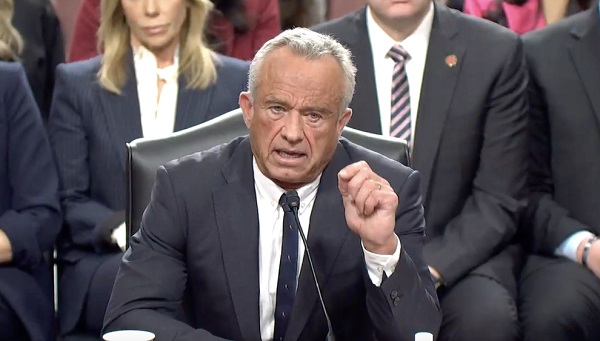
 Autism21 hours ago
Autism21 hours agoNIH, CMS partner on autism research
